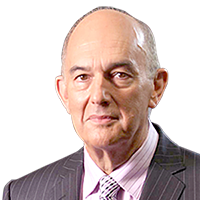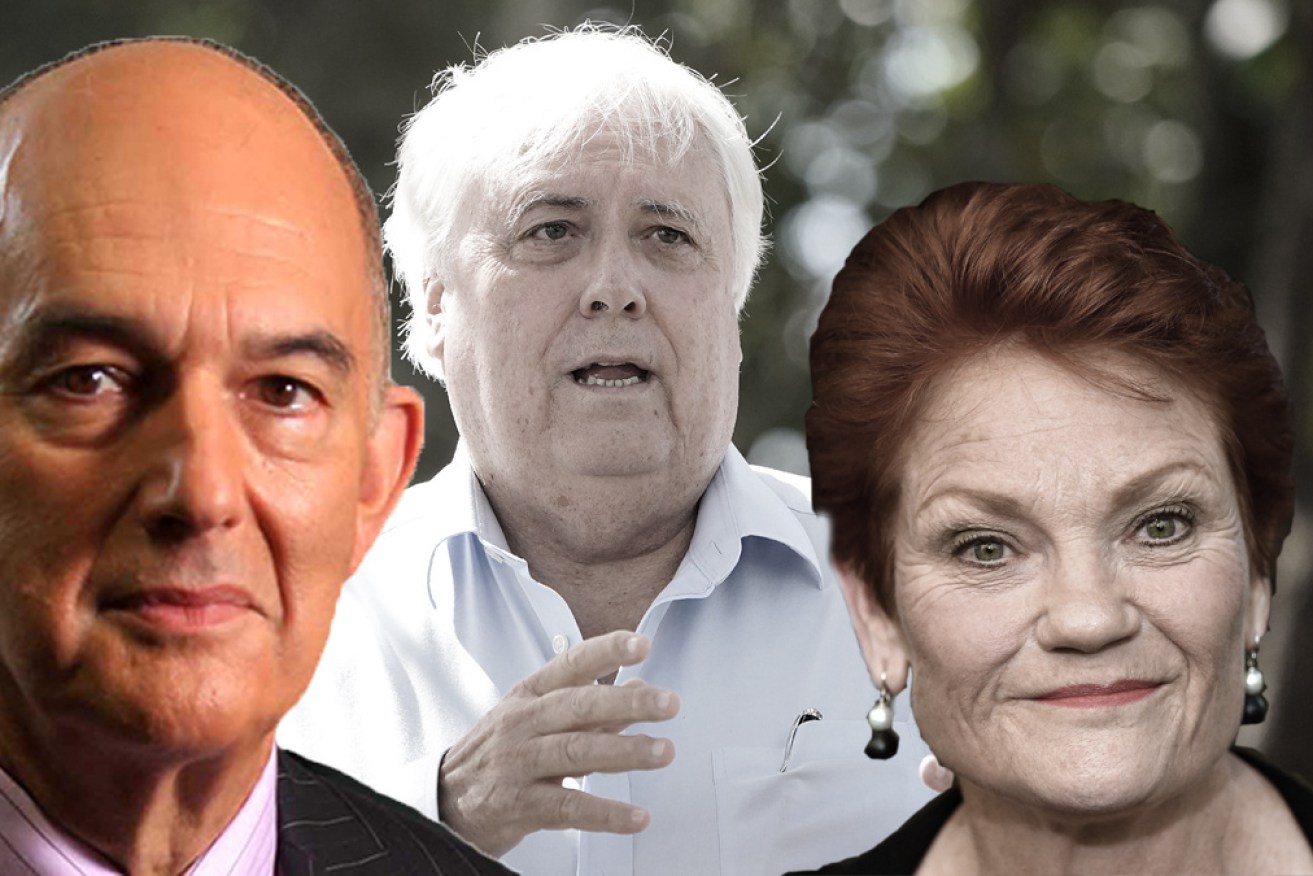Paul Bongiorno: The Coalition’s rocky path to holding on to power


Scott Morrison must choose between vaccines and votes, Paul Bongiorno writes. Photo: AAP/TND
There is a profound contradiction emerging over the narrow path Scott Morrison must tread to win – and so far people outside of Queensland may not have noticed it.
Although the spectacular restoration of the colourful populist Barnaby Joyce to the leadership of the National Party (and therefore to the country’s second most important job) may have alerted some south of the Tweed River to what is happening.
The contradiction involves the crucial role of vaccines in ultimately managing the pandemic, as well as the divide between regional and urban Australia.
For context, we need to have an overview of Newspoll since the Coalition’s narrow victory in 2019.
Put simply, neither the Coalition nor Labor has established a political dominance since.
Even with a pandemic and the Prime Minister’s declining ratings – sky high in 2020 and descending in 2021 – neither party can find an upper hand.
The latest Newspoll has Labor marginally in front 51-49, a line-ball result that, in reality, is too close to call and has been that way for most of the past two years.
Labor’s primary vote, on the other hand, has been consistently four to six points higher than it was when it lost “the unlosable election“.
That surprise Coalition victory has many factors but no one – including the Liberal machine federally or the LNP in Queensland – doubts the massive impact of Clive Palmer’s multimillion-dollar anti-Labor media advertising and Pauline Hanson’s One Nation Party directing its preferences away from Labor.
For Mr Morrison to hold on to his Central Queensland seats, especially with two sitting members retiring, he will need the same help this time.
He will get it at a price.
Scott Morrison and the antics of anti-vaxxers

Clive Palmer’s claims are wrong, according to the federal health department and doctors.
And the price is turning a blind eye to both Mr Palmer and Senator Hanson being on their own anti-vaccination missions.
Mr Palmer was forced by the Therapeutic Goods Administration to withdraw dangerously misleading advertisements from a string of Queensland regional radio stations, but he has already flagged that he intends to resurrect his dormant United Australia Party and to be as highly visible on paid media this election as last.
Just as problematic, Senator Hanson in a flattering two-page feature in Brisbane’s Courier Mail last weekend said she was against vaccines, and would “prefer the risk of getting sick or dying”.
Senator Hanson, who intends to run again, said she “doesn’t want to put any foreign bodies into her body”.
Tweet from @couriermail
And for good measure she didn’t think Scott Morrison was a good Prime Minister but was an “arrogant bully.” She prefers Peter Dutton.
The PM is already facing sustained criticism not only from the Opposition for the vaccine shambles and quarantine failures, but now also from state premiers, including the embattled Gladys Berejiklian in New South Wales.
Mr Morrison’s task of appealing to the anti-vaxxers’ sentiment on his far-right flank, while simultaneously answering mainstream criticism for vaccine supply failures contributing to massive lockdowns, is a daunting dilemma for him.
So far, according to the polls, voters have been very indulgent, but the signs are their patience is wearing thin.
Barnaby throws barbs
The Prime Minister’s reluctant response last week informing the Queensland and Western Australian governments of possible sites for purpose-built quarantine facilities is a sure sign the electoral danger is slowly dawning on him.
The re-emergence of Barnaby Joyce is being hailed as a positive for holding or winning coal seats in Queensland and NSW, but in an interview in News Corp’s high-circulation Sunday papers, his risk to the cause in the cities was stark.
Mr Joyce told political reporter James Campbell that he agreed the lockdown in Melbourne was a disaster zone.
The newly re-minted Deputy PM said: “Of course. But in country areas we couldn’t really give a sh-t.”
He went on: “We’ve got record exports of coal. Record exports of beef. But we look at Melbourne and go, you can almost smell the burning flesh from here.”
Labor’s current deputy leader Richard Marles was hounded throughout the 2019 election campaign for welcoming the collapse of the thermal coal sector as a “good thing”.
The only thing that collapsed as a result was Labor’s vote in the Central Queensland seats of Flynn and Capricornia, aided of course by Bob Brown’s anti-Adani coal mining convoy into the region.
The Morrison government’s reluctance to offer generous relief to urban workers hit by the lockdown just as neatly rams home Mr Joyce’s very unsympathetic response to Melbourne’s – and indeed now Sydney’s – plight.
This division on the non-Labor side of politics has a higher tolerance in the electorate mainly because they are two parties, but they form one government and in Queensland are a merged entity in the Liberal National Party.
The perception of conflicting messages in different parts of the country damaged Labor’s leader Bill Shorten three years ago.
Mr Morrison risks a similar backlash if he allows his truculent deputy to go unchecked.
Paul Bongiorno AM is a veteran of the Canberra Press Gallery, with 40 years’ experience covering Australian politics








